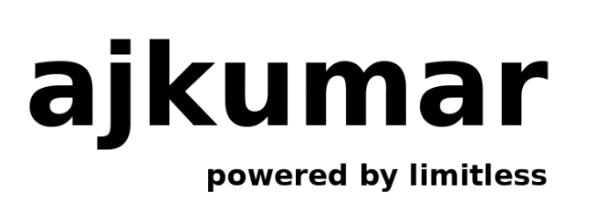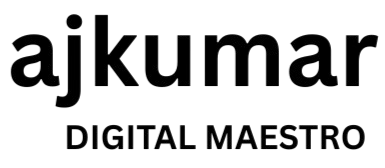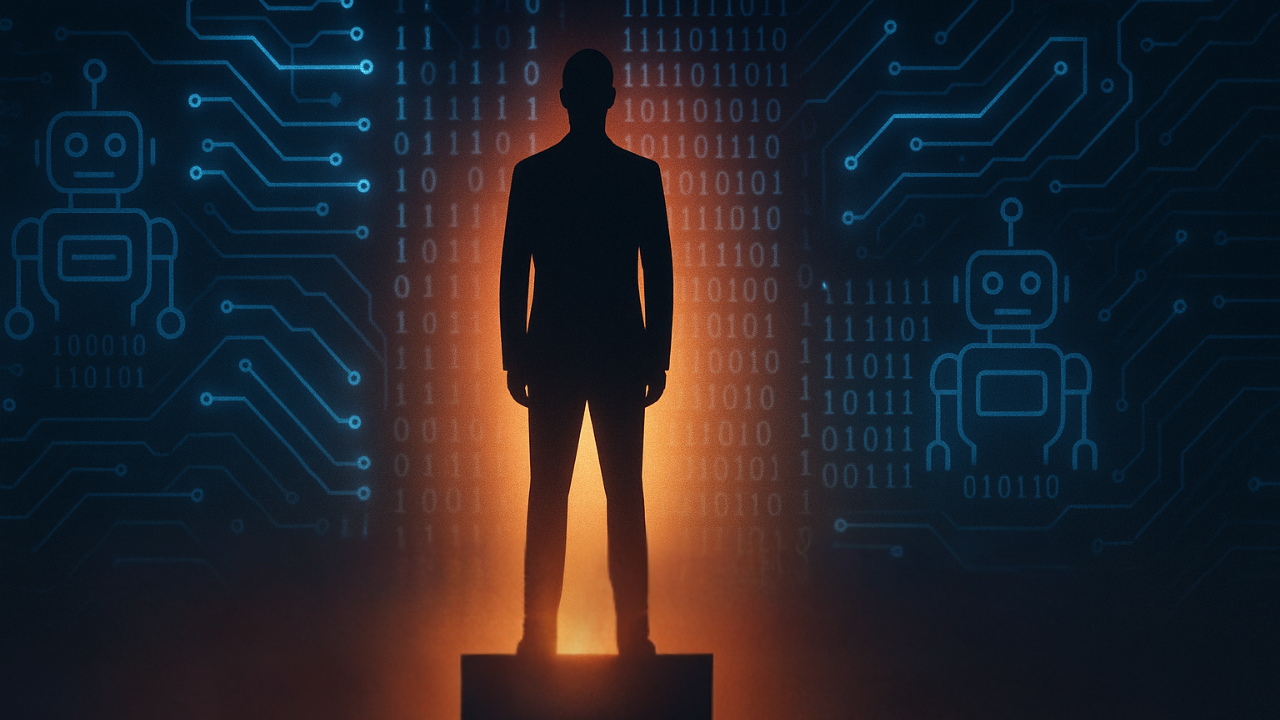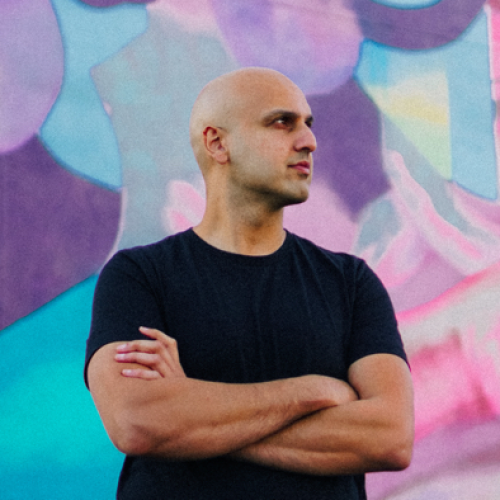I was scrolling through LinkedIn last week when I saw something that stopped me in my tracks. PayPal just posted a job opening for “Head of Content Strategy” with one specific mandate: amplify their CEO’s personal brand across digital platforms. A Fortune 500 company is literally hiring someone whose entire job is making their leader more visible as a person.
That’s when it hit me. We’re not just seeing a trend toward personal branding, we’re witnessing the complete restructuring of how business gets done.
Think about it. When you need marketing advice, do you Google “marketing strategies” or do you look up what Gary Vaynerchuk is saying? When you’re thinking about lifestyle choices, are you browsing generic wellness blogs or checking what Dr. Mark Hyman posted this morning? When you want to understand the future of work, do you read Harvard Business Review or wait for the next Naval Ravikant tweet?
How to Get Rich (without getting lucky):
— Naval (@naval) May 31, 2018
We’re living through the collapse of institutional authority and the rise of individual authority. And if you’re not building yours, you’re about to become irrelevant.
Key Takeaways:
- AI Is Destroying Old Advantages but Elevating Personal Brands: Traditional business moats like content marketing, customer service, and data analysis are being automated by AI. The one thing AI can’t replace is human authority and trust. Personal brands become more valuable as AI wipes out everything else.
- Personal Authority Has Become Infrastructure: Leaders like Martha Stewart, Alex Hormozi, Oprah, and MrBeast show how a strong personal brand isn’t just influence — it becomes the operating system for an entire market. Their perspective shapes industries, moves markets, and creates new business ecosystems.
- Building an AI-Resistant Personal Brand Is Urgent: The path forward is to lean into your unreplicable assets (unique experiences, failures, perspectives), position yourself as a hub for insights and connections, and take bold, contrarian positions. Those who do will capture disproportionate value; those who don’t will be displaced by AI.
How AI Is Eliminating Every Traditional Business Advantage
Every business advantage you thought mattered is getting steamrolled by AI. Content marketing? ChatGPT writes better blog posts than most agencies. Data analysis? AI spots patterns humans miss entirely. Customer service? Chatbots now handle complex queries better than call centers.
But here’s what’s fascinating: while AI destroys these traditional moats, it’s actually making personal brands more valuable, not less.
Look at what happened to Martha Stewart. She didn’t just build a lifestyle brand, she became the lifestyle. When retailers want to understand home trends, they don’t commission market research. They watch what Martha does. When investors want to spot the next big thing in domestic products, they see who Martha partners with. She’s not just a media personality; she’s business infrastructure.
The same thing is happening across industries. Alex Hormozi isn’t just another business coach, he’s become the definitive authority on business acquisitions. When private equity firms want to understand that market, they study his content. When business owners need capital, they follow his frameworks. His personal brand became the market’s operating system.
View this post on Instagram
The Neuroscience Behind Why AI Cannot Replace Personal Authority
There’s a neurological reason personal brands remain unbreachable while everything else gets automated. When Alex Hormozi talks about losing $100,000 on his first gym, your brain literally mirrors his emotional experience. Neuroscientists call this mirror neuron activation. This is when your neural pathways fire as if you’re experiencing his failure yourself.
That creates trust in a way no algorithm can replicate. AI can tell you about business failures, but it can’t make you feel the stomach-dropping moment when the bank account hits zero. It can analyze market data, but it can’t share the specific panic of signing a personal guarantee on a lease you’re not sure you can afford.
This is why Oprah built a media empire while generic talk shows disappeared. People didn’t tune in for celebrity interviews, they could get those anywhere. They tuned in for Oprah’s specific reactions, her particular questions, her unique perspective shaped by growing up poor in Mississippi and building something unprecedented.
Your experiences, your specific background, your particular way of seeing problems – these become more valuable as everything else gets commoditized.
How to Build an AI-Resistant Personal Brand: The Complete Framework
Building real authority in the AI era requires a different approach than traditional personal branding. You’re not just trying to get followers, you’re trying to become infrastructure.
Start With Your Unreplicable Assets
What experiences do you have that shaped how you think differently? Ellen DeGeneres didn’t become a media mogul by being generically funny. She built authority by being authentically herself in an industry that demanded conformity, creating space for others to do the same.
Your unreplicable assets might be:
- Growing up in a specific culture or economic situation
- Failing spectacularly in ways others haven’t
- Succeeding in environments others find impossible
- Having perspectives that mainstream thinking considers wrong
- Position Yourself as the Connection Point
The most powerful personal brands become the hub through which business flows. When Fortune 500 CEOs want to understand Gen Z, they don’t hire firms like McKinsey, they text Mr. Beast. When tech executives need to understand creator economy trends, they don’t read reports, they call creator consultants who’ve built audiences.
Ask yourself: What introductions do people ask you to make? What questions do colleagues bring to you? What problems do you solve that keep people coming back? Those are signals of where you could become indispensable infrastructure.
Develop Contrarian Positions You Actually Believe
Real authority comes from taking positions that require courage. Paul Graham’s “founder mode” philosophy gained traction not because it was popular, but because he was willing to publicly disagree with conventional management wisdom, the same kind that nearly destroyed Airbnb.
What conventional wisdom in your industry do you think is wrong? What practices does everyone follow that you believe are counterproductive? What would you argue if reputation and revenue weren’t factors?
Why Personal Brands Command Higher Salaries and Premium Pricing
Personal brands that achieve this level of authority capture disproportionate value. They command premium pricing because clients aren’t buying services, they’re buying access to specific judgment and perspective. They generate organic referrals because people want to work with individuals they know and trust. They create network effects because they become central nodes that others depend on.
Multiple studies and recruiter surveys show that professionals with highly visible personal brands command substantial salary premiums. Some research suggests more than double, or even 13 times, the pay of less visible peers. Nearly 80% of consumers prefer buying from companies whose CEOs are active and visible, and 49% of company reputation is driven by the CEO’s personal brand.
When Elon Musk tweets about Tesla, markets move. When Kim Kardashian mentions a product, it sells out. When Paul Graham shares startup advice, founders change their strategies. These aren’t just influential people, they’re individuals whose personal brands have become market-moving forces.
Build Personal Authority Before AI Dominates Your Industry
We’re in a unique historical moment. AI is destroying traditional competitive advantages faster than most people realize, but the new rules aren’t fully established yet. There’s a window of opportunity for individuals who understand what’s happening to build positions that become unassailable.
The entrepreneurs and executives who recognize this shift and act accordingly will capture disproportionate value. Those who continue competing on traditional metrics, like efficiency, cost-cutting, and process optimization, will find themselves displaced by AI systems that perform these functions at superhuman scale.
Personal branding isn’t marketing anymore. It’s economic survival infrastructure.
The question isn’t whether you need to build a personal brand. The question is whether you’ll do it before or after your traditional advantages disappear. Because they’re disappearing either way.
PayPal’s CEO job posting isn’t an anomaly, it’s a signal. The smartest organizations already understand that their leaders’ personal authority will determine their competitive position in an AI-dominated world.
The only question left is: what are you waiting for?
Frequently Asked Questions
What is personal branding and why does it matter for professionals?
Personal branding is the deliberate way you shape how people see you through your voice, experiences, and expertise. It matters because of how the brain builds trust. When people hear your personal stories, their mirror neurons fire as if they are experiencing those stories themselves, creating empathy and credibility. AI can share information, but it cannot trigger this kind of emotional resonance, which is why human authority remains more valuable
How do I start building my personal brand online?
Begin by sharing your unreplicable experiences and lessons consistently on the platforms where your audience is active. Neuroscience shows that emotional storytelling activates brain regions tied to memory and decision-making, making your content more persuasive than facts alone. Consistency wires your brand into the neural pathways of your audience, so they automatically associate you with authority in your field.
What’s the difference between reputation and personal branding?
Reputation is how people remember your past actions. Personal branding is how you actively shape perception in the present. The difference matters because the human brain forms predictive models based on repeated signals. Reputation is a passive signal, while personal branding is intentional input that shapes those predictive models over time
What are the first three steps to creating a strong personal brand?
- Identify your unreplicable assets. Your brain’s emotional wiring makes unique experiences and failures far more memorable than generic successes.
- Define your positioning. People remember those who create clear neural associations with one specific area of expertise.
- Show up consistently. Repetition strengthens neural pathways through a process called long-term potentiation, making your brand “stick” in the minds of your audience




